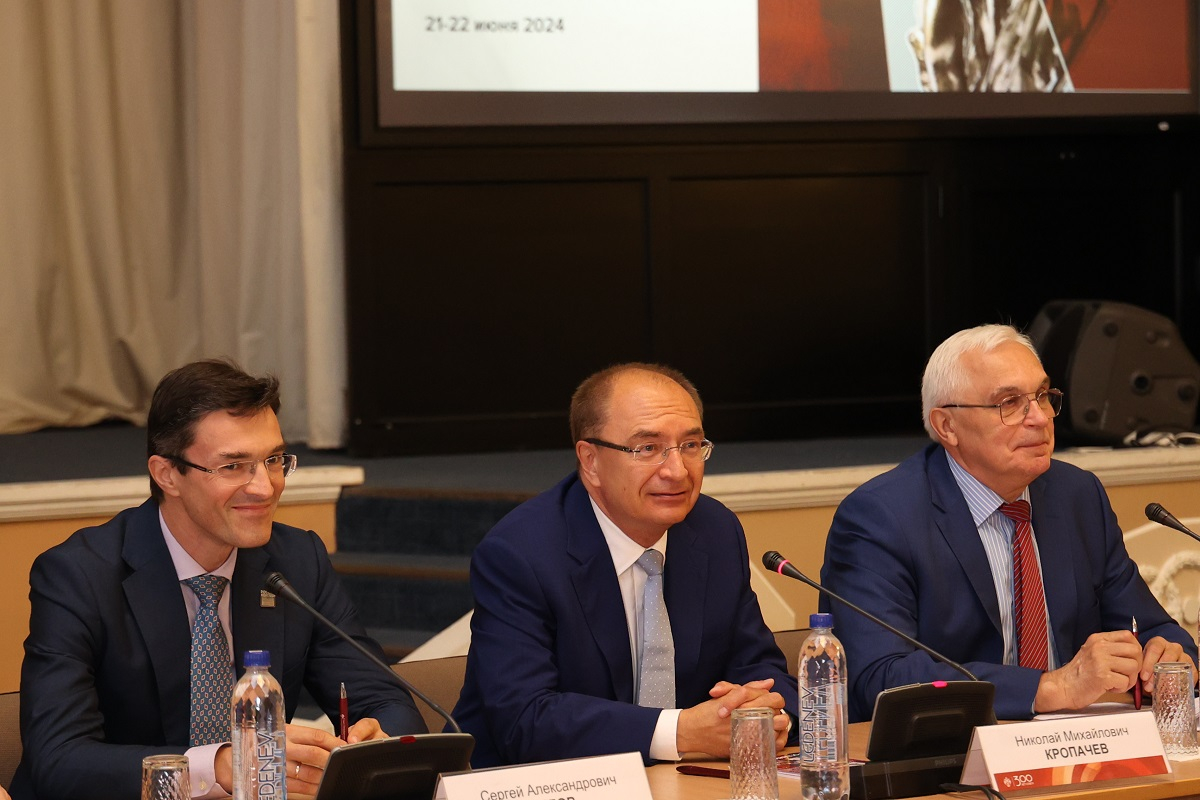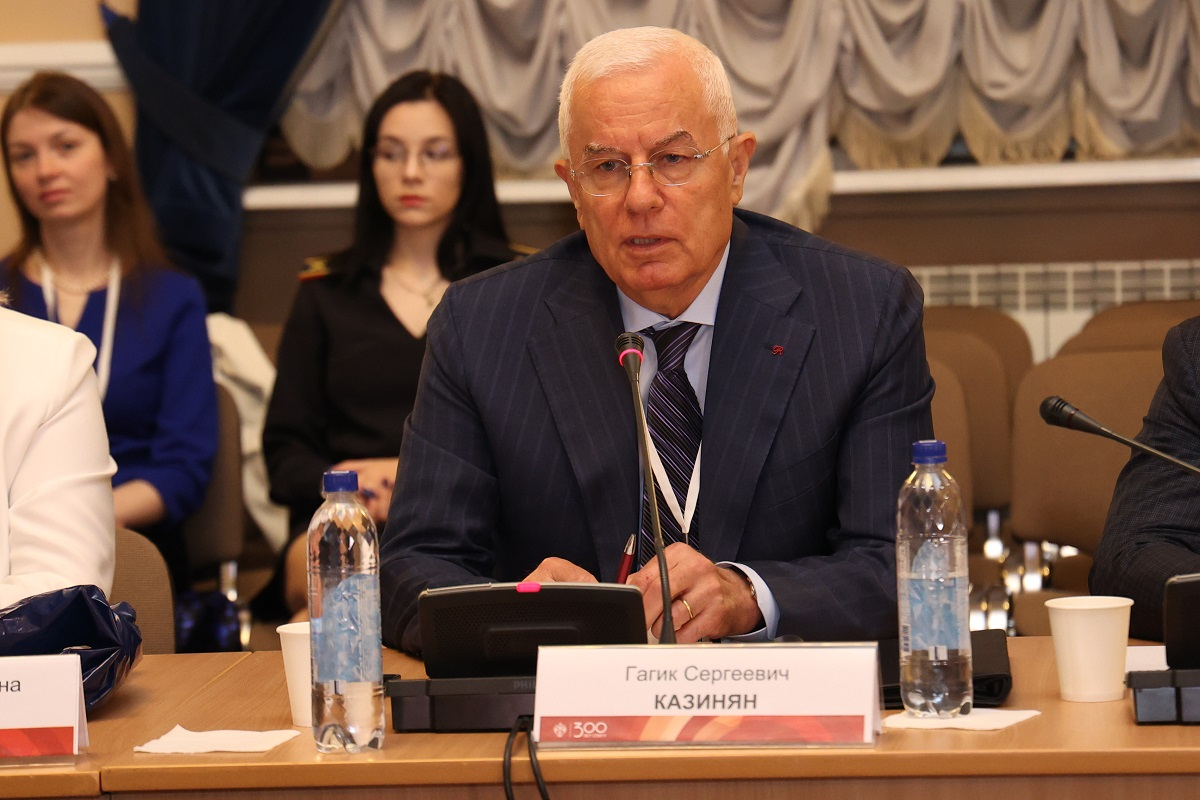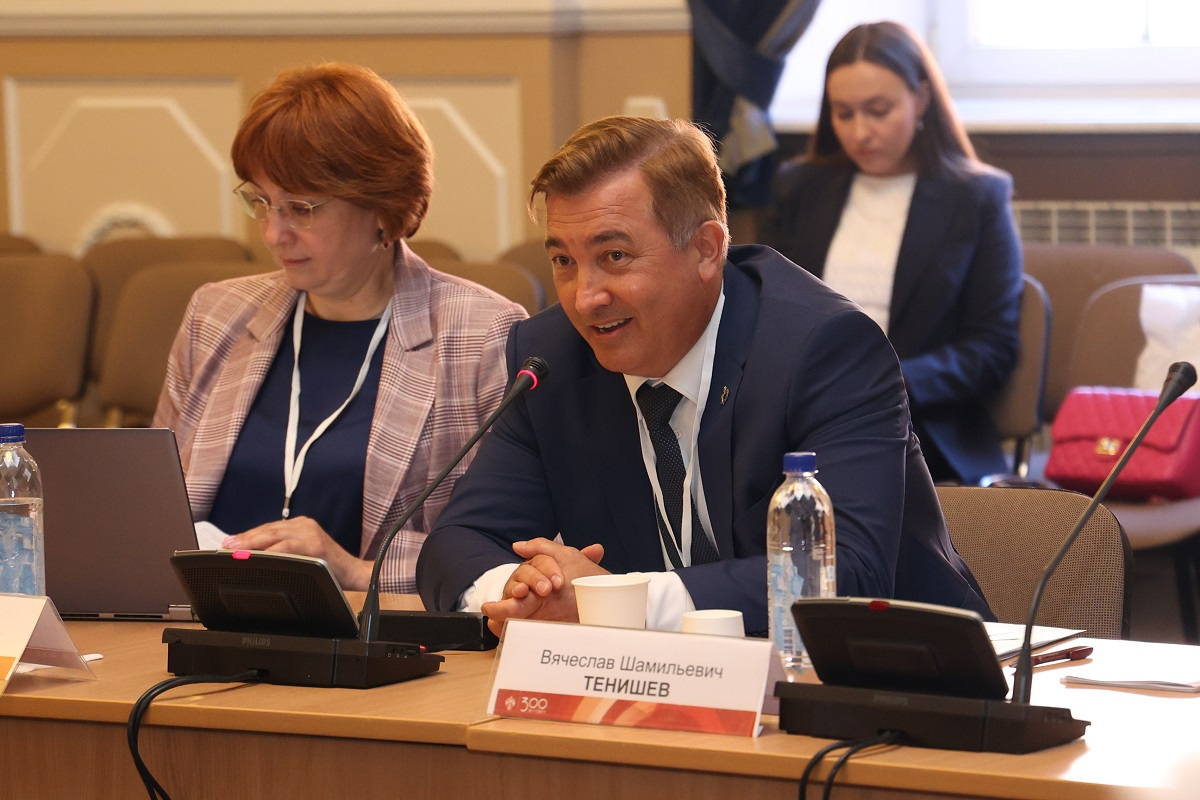St Petersburg University scholars discuss the development of forensic science and criminal justice in Russia
The 16th Conference "Scientific School of Criminal Procedure and Forensic Science" has been held at St Petersburg University. This year, the conference was timed to coincide with the celebration of the 300th anniversary of the University and was dedicated to outstanding scholars and the discussion of issues in modern criminal justice.
The conference was attended by: Nikolay Kropachev, Rector of St Petersburg University, Corresponding Member of the Russian Academy of Sciences; Andrei Golombievskii, Chairman of the St Petersburg Committee for Justice, Legal Order, and Safety; Sergei Belov, Dean of the Faculty of Law at St Petersburg University; and Denis Laktionov, President of the Bar of the Leningrad Region. Among other participants were scholars and teachers — totalling more than 200 people from Russia, Armenia, Kazakhstan, Kyrgyzstan, and the Republic of Iraq.
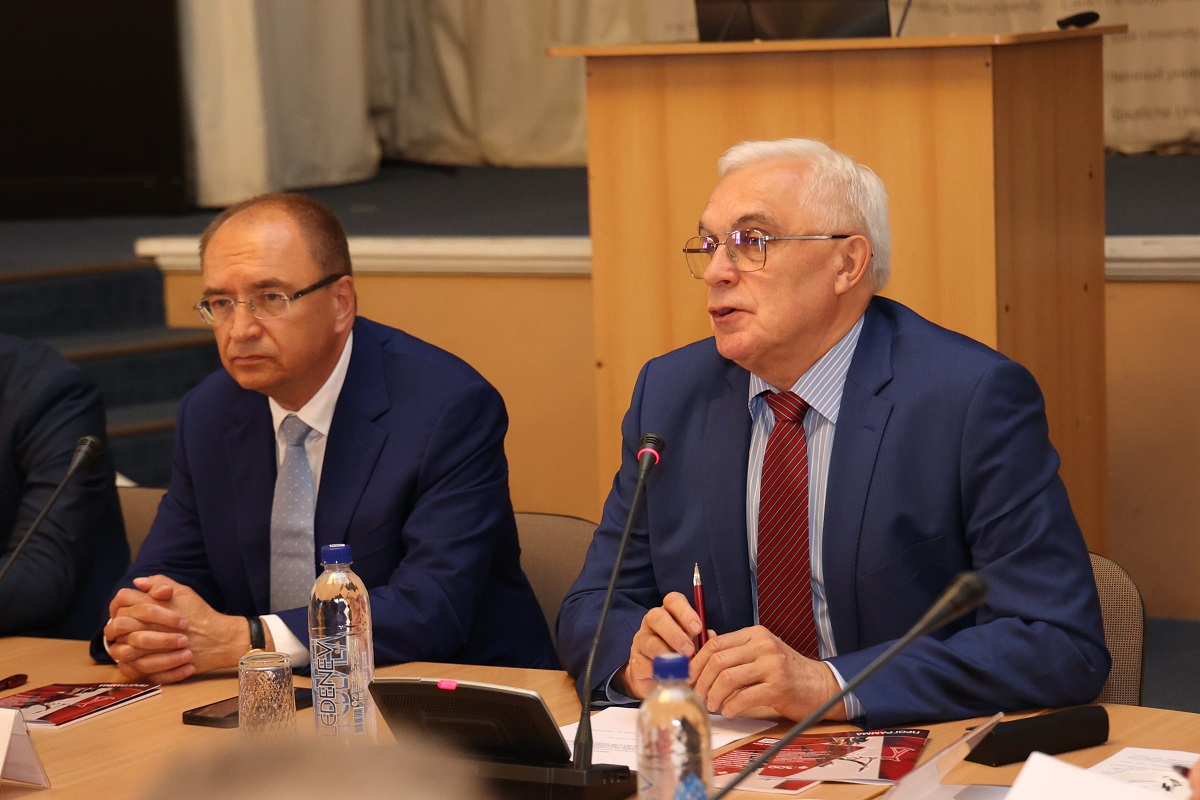
The conference was opened by Nikolay Kropachev, Rector of St Petersburg University, Corresponding Member of the Russian Academy of Sciences. He noted that legal science at the University has always developed in collaboration with scientists and scholars from other industries. Nikolay Kropachev recalled that the famous scholar Vladimir Lukashevich (one of the leaders of the aforementioned school) at every faculty event in the 1990s spoke about the need for digitalisation, the necessity for lawyers to be proficient in a foreign language, and to exchange best practices with specialists from other fields and countries. It is no coincidence, as Nikolai Kropachev emphasised, that the Department of Criminal Procedure and Criminal Investigations at St Petersburg University (Leningrad State University) has always been renowned for its foreign relations and interdisciplinarity — where forensic doctors, psychiatrists, and criminologists collaborated.
For three centuries, St Petersburg University has nurtured a unique tradition of training lawyers and criminologists who are now recognised far beyond our country’s borders.
Remembering the contributions of their teachers, the participants highlighted the impact of Nikolai Alekseev, Ivan Krylov, Vladimir Lukashevich, and Polina Elkind in shaping the Leningrad school of criminal procedure and criminal investigations. Under their guidance, the University scholars have produced over a thousand publications highly valued by the legal community, many of which have been distinguished as top works in various university competitions in the Soviet Union and garnered positive reviews. Additionally, they have influenced multiple generations of young lawyers.
Sergei Belov, Dean of the Faculty of Law at St Petersburg University, shared that during his student years, he and his peers "dreaded the exams with Vladimir Lukashevich, as receiving a good mark was quite challenging." Nevertheless, studying by his textbooks and attending his lectures, students came to regard Vladimir Lukashevich as a legendary figure. Sergei Belov emphasised that the Department of Criminal Procedure and Criminal Investigations at St Petersburg University (Leningrad State University) has consistently balanced exceptional academic research with deep care for its students.
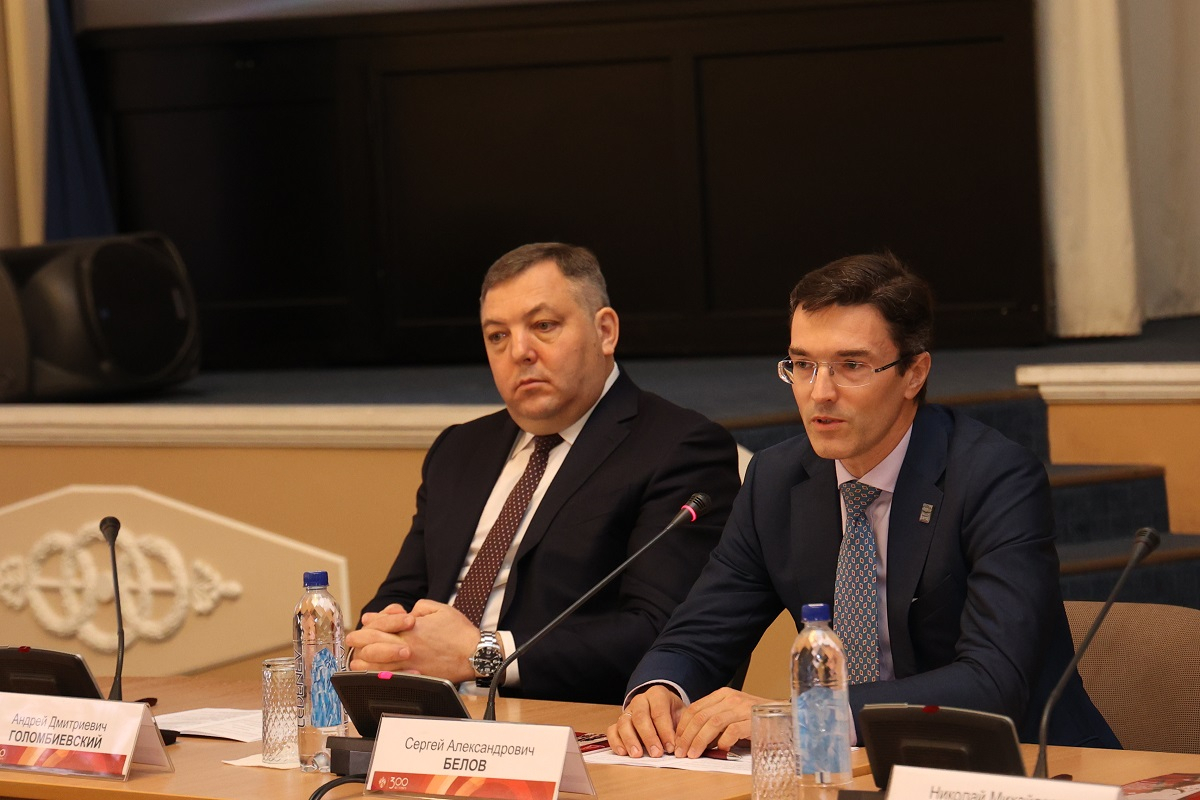
Another distinctive feature of the Department of Criminal Procedure and Criminal Investigations noted by participants is the close involvement of academics in practical fieldwork. Nearly all instructors boast a background in either investigation or legal practice. It enables them to educate students using real-life scenarios rather than solely relying on textbooks, thus upholding the apex standards of expertise.
Denis Laktionov, President of the Bar of the Leningrad Region, lauded St Petersburg University’s training in criminal procedure and criminal investigations, hailing the University as a crucible for nurturing top-tier professionals and safeguarding the timeless traditions cherished by its educators.
Svetlana Kushnirenko, Associate Professor at St Petersburg University, highlighted that these traditions date back to the 19th century when legal circles were established in St Petersburg. These circles evolved into full-fledged legal societies whose members, on the cusp of the mid-century reforms, introduced ground-breaking concepts to legal theory and practice, paving the way for innovative solutions.
The inaugural legal society was created in St Petersburg in 1877 under the leadership of Professor Ivan Fojnickij and Professor Nikolai Stoyanovsky. The main objectives of this institution were to: provide legal aid to the public; deliver public lectures; establish libraries and reading rooms; carry out scientific missions; improve the skills of the staff; and, of course, pursue scientific endeavours, the results of which were implemented in a meaningful way. The organisation’s affiliates shared a tight-knit relationship with the University, with numerous members later dedicating their careers to the institution.
In 1891, at the University, under the guidance of Professor Ivan Fojnickij, a criminal law department was established. It contained, amidst other things, displays pertaining to the penal system, encompassing the execution of penalties (including incarceration), and the pioneer tools used by criminologists at the time. "What appears obvious and commonplace to us now was ground-breaking then," Svetlana Kushnirenko highlighted.
Presently, the Department of Criminal Procedure and Criminal Investigations at St Petersburg University stands as a prominent entity in the nation. The Department has crafted instructional material for the subjects ‘Criminal Procedure in Russia’ and "Law Enforcement Agencies".
The central deliberations of the conference occurred during round-table discussions. They were focused on the issues surrounding appeals and cassation in both Russian and international legal practices, inquiries into fraudulent activities, the utilisation of findings from operational investigative operations, alongside the expert opinions and testimonies in criminal proceedings.
The conference was graced by the presence of notable figures such as: Professor Vladimir Pristanskov, Head of the Department of Criminal Procedure and Criminal Investigations at St Petersburg University; Professor Nataliia Kirillova; Professor Nikolai Stoiko; Associate Professors Nataliia Sidorova, Viacheslav Nizamov, Anton Kharatishvili, Andrei Tuzov, and Vadim Petrov; and Assistant Professor Igor Odnokolkin. Also, in attendance were other esteemed faculty members, along with students and postgraduates from St Petersburg University.
The international nature of the conference was exemplified by the distinguished presence of scholars and experts from various countries including Armenia, Kazakhstan, Kyrgyzstan, and Uzbekistan. Among them were: Professor Gagik Ghazinyan, Member of the National Academy of Sciences of the Republic of Armenia; Professor Bakhyt Nurgaliev, Honorary Member at the National Academy of Sciences of the Republic of Kazakhstan; Samvel Dilbandyan, Professor at Yerevan State University in the Republic of Armenia; Takhir Saifutdinov, Vice Rector and Professor at Osh State Law Institute in the Republic of Kyrgyzstan; and Dilbar Suyunova, Professor, Head of the Department of Criminal Procedure Law at Tashkent State University in the Republic of Uzbekistan.



